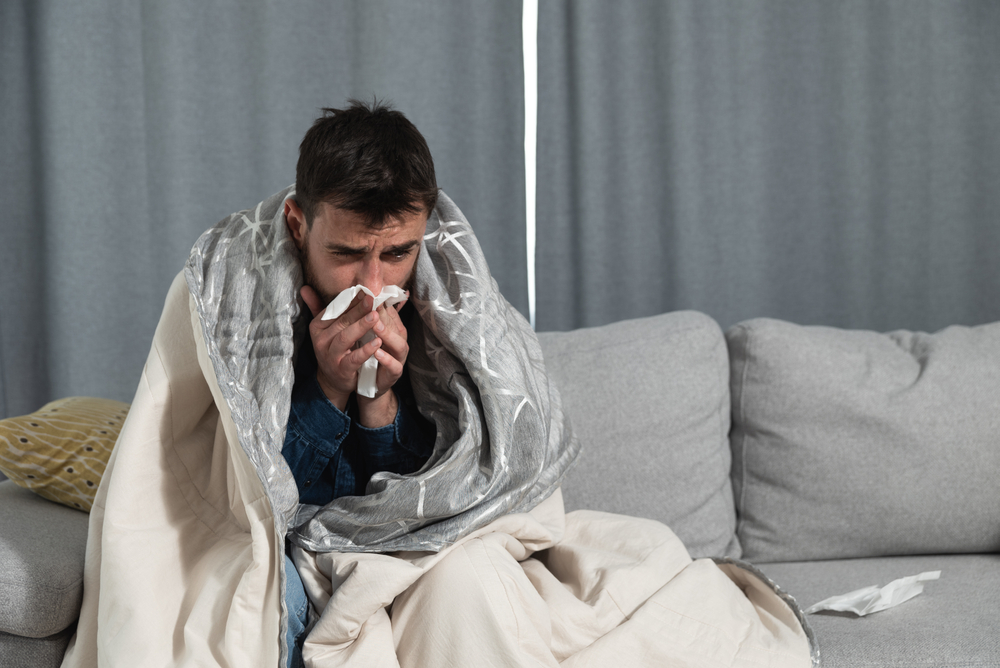We tend to underestimate the magnitude of the disruptions to our daily lives caused by the common cold.
The symptoms of a typical cold can disrupt our lives from the moment we get up until we lay our tired bodies to rest.
This article will explain how a cold can disrupt your regular life and provide actionable advice for dealing with the disruptions it causes.
Mornings: Struggle With the Alarm
When a cold sets in, simply getting out of bed can be a chore. It’s tough to get motivated to face the day when you have a stuffy head, sore throat, and general feeling of blah.
We struggle to gather the energy necessary for our morning rituals when we have a cold, so we hit the snooze button several times, put off our routines, and watch as the busy morning we had envisioned swiftly slips away.
It may help to get up a little earlier in the morning so you can ease out of your sleepiness. Congestion can be eased and the senses revitalized with a hot cup of herbal tea or a steamy shower.
Problems at Work: Tiredness and Lack of Concentration
When we’re sick, even the simplest tasks, like getting out of bed and to work, can feel like an uphill battle, and it takes a lot more energy than usual to get through the day.
Our hazy brains need aid in remembering things and staying focused, making concentration difficult. What was once a breeze is now a chore, and that means less output and more room for error.
It’s important to take breaks every so often to clear your head and refuel. Tell your coworkers and superiors what’s going on; they might be able to help or at least make temporary adjustments to your workload.
Difficulties in Communicating: Nasal Conundrum
Imagine you have a big meeting or social event but you’re struggling to communicate because of a stuffy nose.
When you have a cold, you may find it difficult to have meaningful conversations since your nose is constantly running and you feel self-conscious about it. You may find that clearing your throat or coughing provides only brief relief, and you may find yourself doing it frequently.
Drinking plenty of fluids might help thin mucus and ease discomfort in the throat. Before you start talking, take some deep, calm breaths to clear your throat and improve your voice.
When you feel better and can communicate more clearly, reschedule or rearrange crucial meetings.
Constraints Due to Physical Illness or Injury
The common cold’s associated body aches and pains can make even the most basic physical chores seem overwhelming. As our bodies grow weary and ache for rest and relaxation, even the simplest tasks, like lifting heavy objects or going for a run, become difficult.
The sore muscles and aching joints may prevent us from moving around as freely as normal and from participating in the kinds of physical activities we enjoy. Temporary relief may be found in over-the-counter pain medications, but before taking any of them, it’s best to check with a doctor to make sure they’re safe and appropriate for your condition.
The Problem of Social Isolation as a Contagious Phenomenon
Because of how easily they can spread, the common cold can cause people to isolate themselves from their peers. Fear of spreading our illness to others could cause us to avoid social situations and normal relationships. The disturbance of our regular social patterns and the accompanying feeling of solitude can have a negative impact on our mental health and well-being.
Share your story with close friends and family or coworkers and explain that you want to minimize the danger of spreading the disease while still keeping in touch with others. If you want to feel close to your loved ones and preserve a feeling of community, it’s important to find ways to keep in touch with them even when you can’t physically be with them.
Conclusion
A common cold can make it difficult to get out of bed in the morning and can also hinder our ability to concentrate at work and in our personal relationships.
Their effects can be lessened if one prioritizes sleep, alters their routine, and looks for help. Take good care of yourself, keep a positive attitude, and get back to your usual workout routine as soon as possible.










